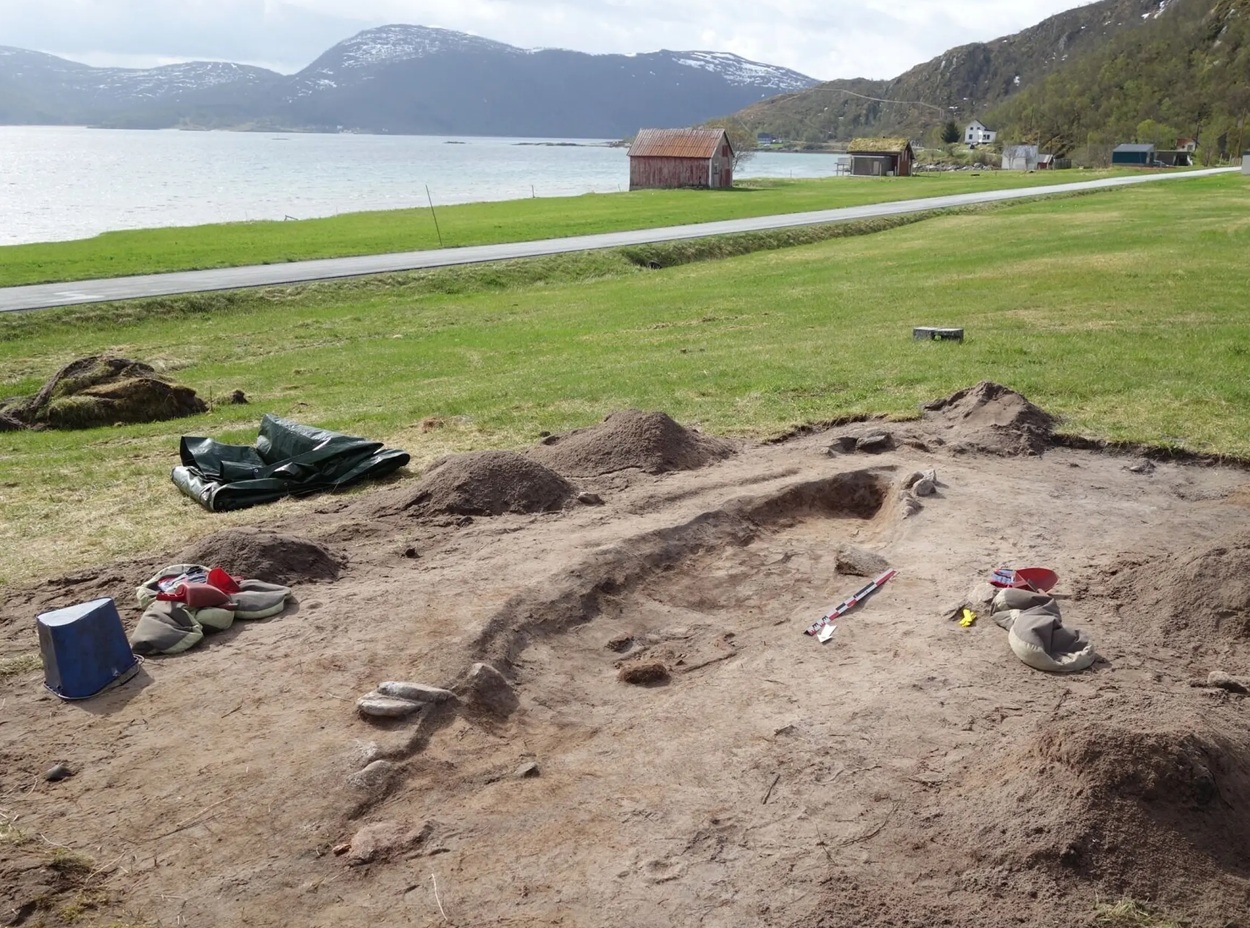Archaeologists have uncovered a Viking-Era boat burial on the island of Senja in northern Norway.
Senja was on the Viking world’s northern frontier, and although not mentioned often in the Icelandic sagas, the island’s strategic location along the Norwegian Sea made it an important area for fishing, trade, and seafaring.
The first traces of the discovery were made by metal detectorists in 2023, who found two oval brooches and several ribs, indicating that the site was a Viking Age burial, as such brooches are characteristic of that period.
In a recent excavation, archaeologists from the Arctic University Museum of Norway identified the outline of a 5.4-metre-long sewn boat, now only visibly by a dark imprint of organic material in the sand as the wood has since decomposed.
At the center of the boat lie the skeletal remains of a woman, buried alongside a carefully placed dog, which archaeologists believe was a beloved companion rather than a sacrificial offering.
Dogs have been found in Viking-Era graves before and are occasionally referenced as the ideal personification of fidelity and companionship, valued traits in Viking culture.
Numerous funerary offerings were also unearthed, such as beads crafted from bone and amber, a hoop pendant, a whetstone, an iron sickle, and several textile tools, including a spindle whorl and a weaving sword made from whale bone.
Based on typeset of artefacts, archaeologists suggest that the woman was likely involved in the local textile industry and dates from around AD 900 to 950.
Header Image Credit : The Arctic University Museum of Norway, UiT
Sources : Science Norway





